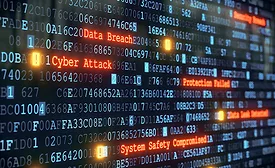Home » cyber threats
Articles Tagged with ''cyber threats''
Students from Carnegie Mellon University Win 2019 Deloitte Foundation Cyber Threat Competition
College students representing 15 universities compete at Deloitte University for a real-world challenge of cyber and business complexity.
March 4, 2019
How to Choose a Trusted Vendor
A Guide for SMBs Navigating the Security Landscape
January 15, 2019
Sign-up to receive top management & result-driven techniques in the industry.
Join over 20,000+ industry leaders who receive our premium content.
SIGN UP TODAY!Copyright ©2025. All Rights Reserved BNP Media.
Design, CMS, Hosting & Web Development :: ePublishing





